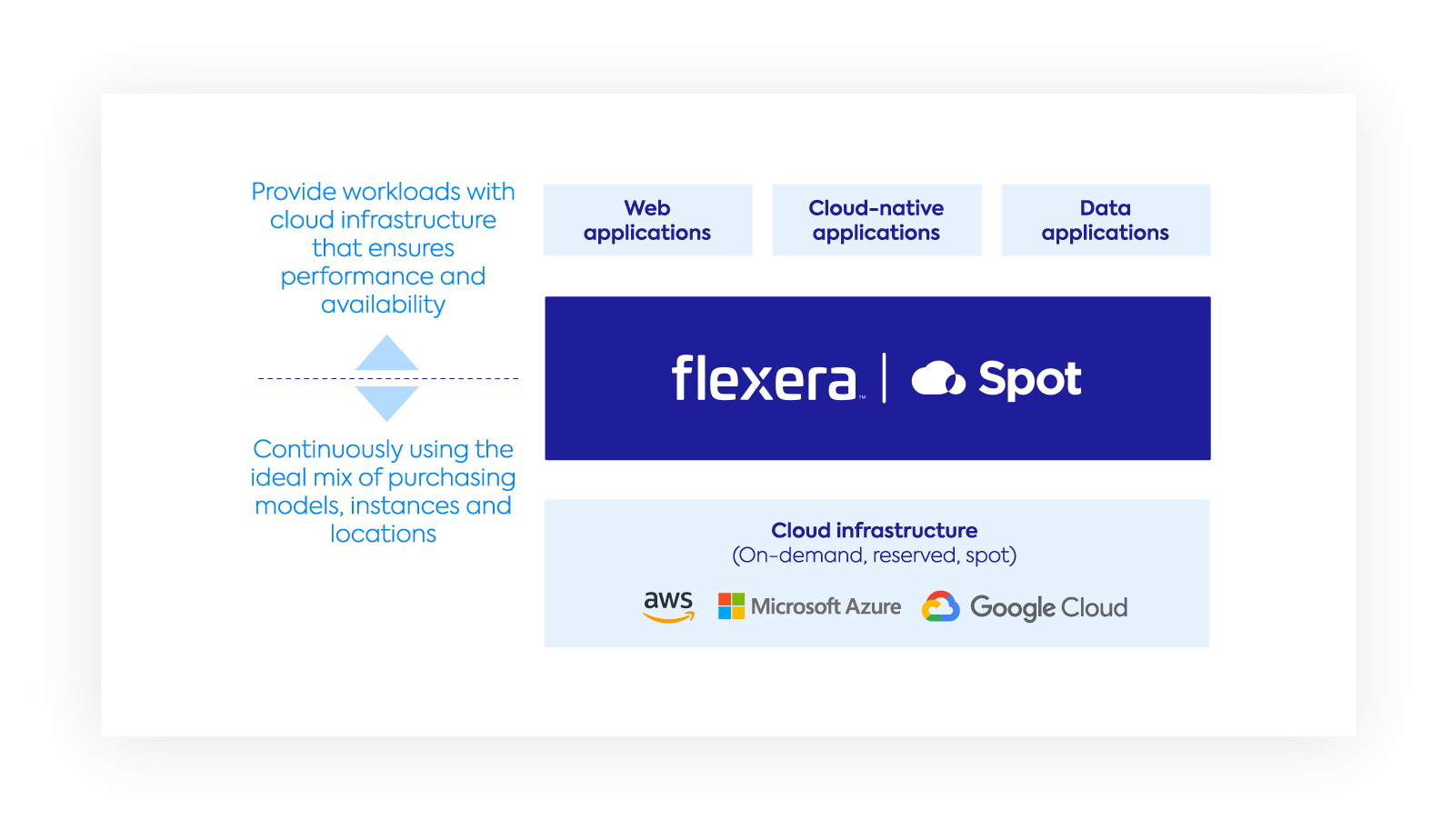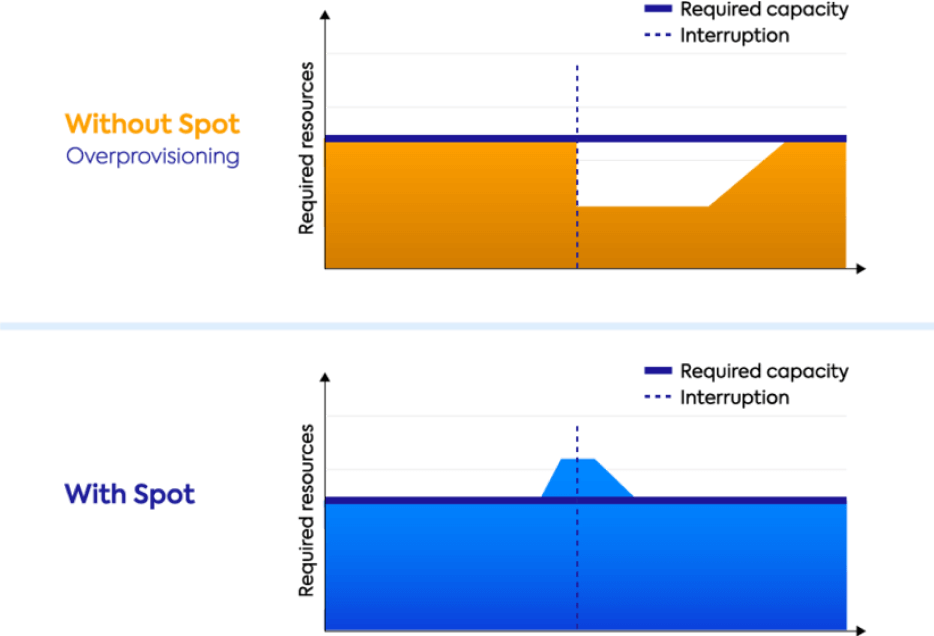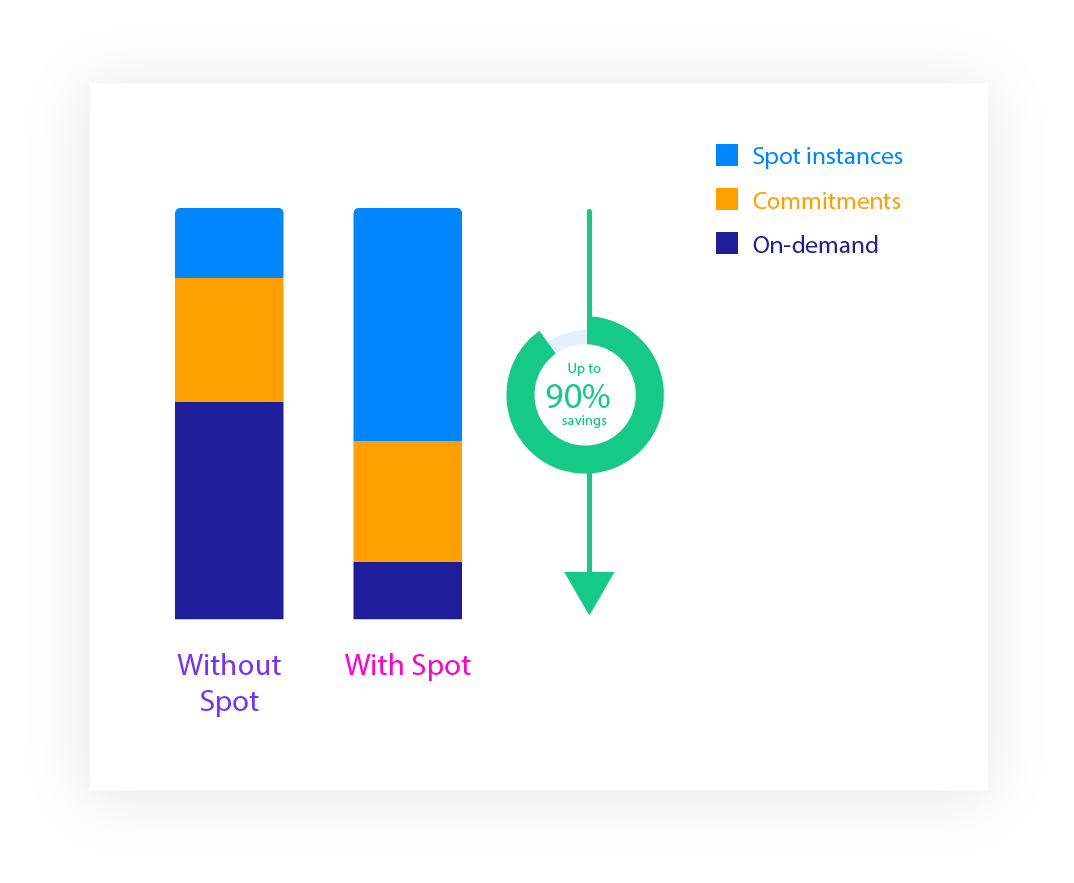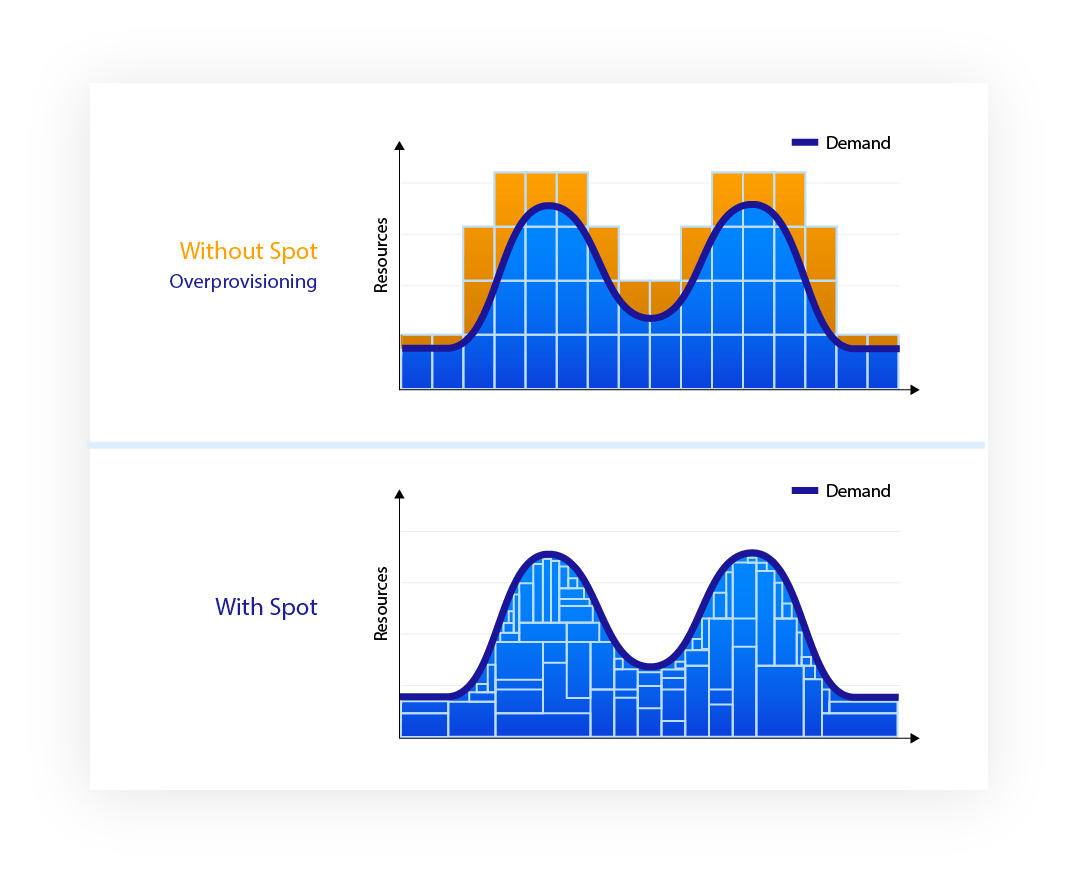Get the most out of your cloud investment
Our solutions combine machine learning and analytics with decades of operations expertise to simplify, automate and optimize operations for your cloud infrastructure, freeing teams to focus on delivering impactful applications without being overburdened by operations and infrastructure.

Learn about our products for automated, optimized cloud operations
Cloud cost management and optimization
Understand, control and optimize cloud costs without sacrificing flexibility, all while driving application efficiency and business performance, with Eco for commitment optimization and CloudCheckr for cloud cost management.
Infrastructure automation and optimization
Continuous automation and optimization solutions, including Elastigroup for virtual machines, Ocean for containers and Kubernetes, Ocean CD for containerized application delivery, and Spot Security for security analysis and threat reduction.





